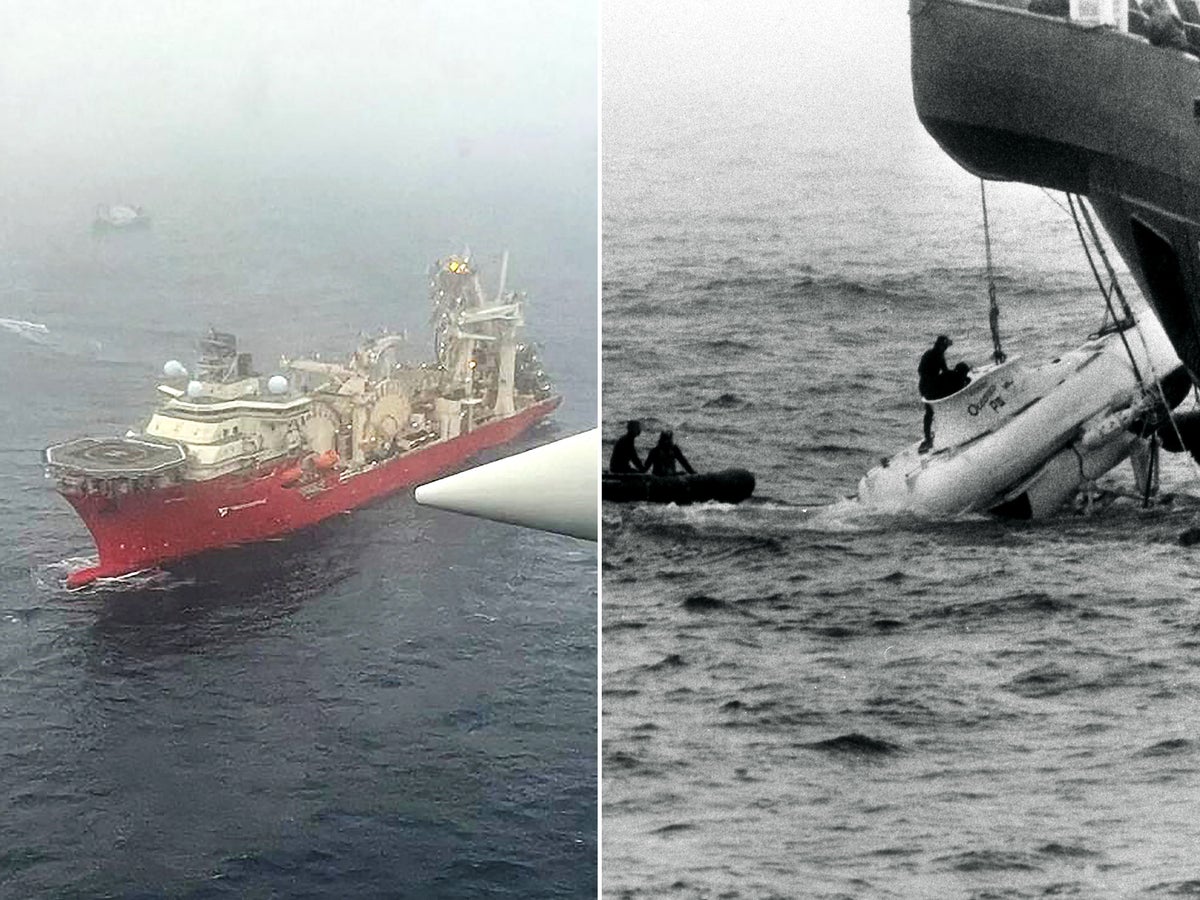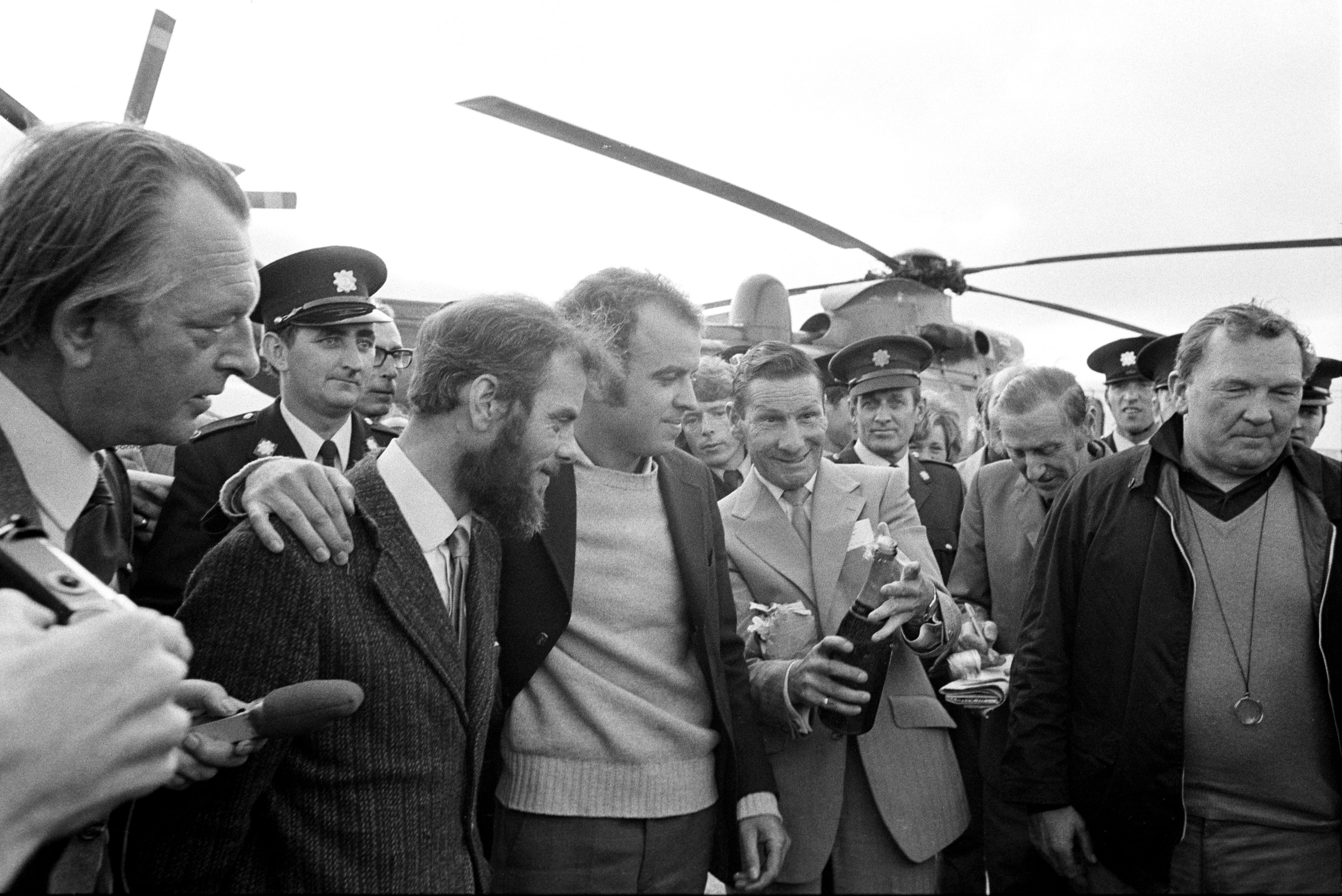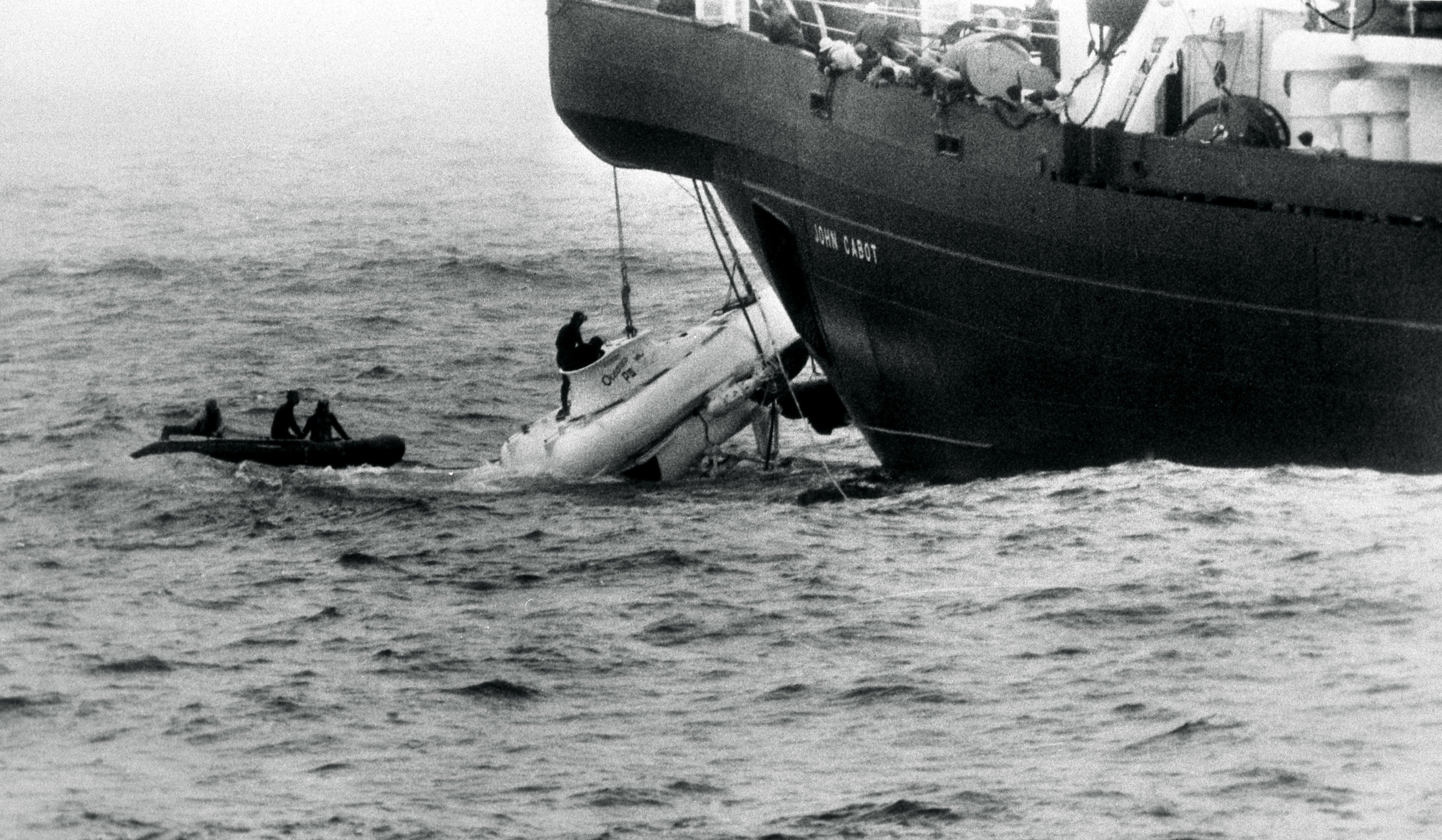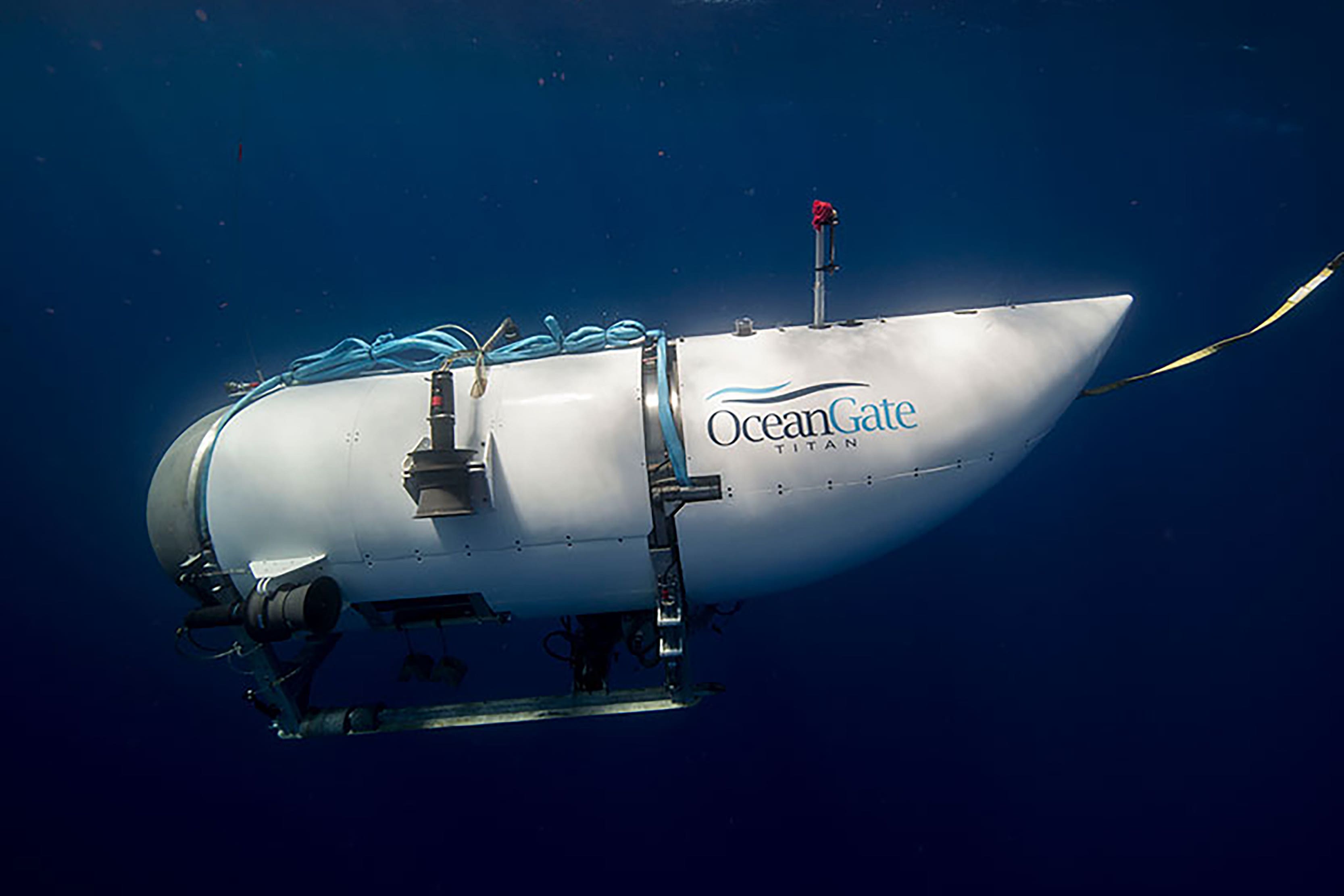
Rescuers frantically searching for the missing Titan submersible may take hope from a successful mission which saw a crew saved after spending 84 hours trapped underwater.
Titan lost contact with its mothership - the Polar Prince - about an hour and 45 minutes after it began diving down to see the Titanic wreckage - which sits on seabed 12,500ft (3,800m) below sea level - on Sunday.
Its five-strong crew includes CEO and founder of OceanGate Expeditions, Stockton Rush, British billionaire explorer Hamish Harding, renowned French diver Paul-Henri Nargeolet and Pakistani businessman Shahzada Dawood and his 19-year-old son Suleman Dawood.
The ongoing race to find the group has led to comparisons with a successful mission to save two submariners trapped 150 miles off the coast of Ireland back in 1973.

Roger Mallinson and Roger Chapman endured almost three-and-a-half days trapped in Pisces III while it lay about 1,600ft (500m) below sea level.
The pair - then aged 28 and 35 respectively - eventually reached the surface with just 12 minutes of oxygen left.
Speaking shortly after it emerged that the crew aboard the missing OceanGate Expeditions vessel have less than 24 hours of oxygen left, Mr Mallison said: “It’s very cold and it’s very dark and it’s really frightening because you don’t know what the outcome is going to be.
“Your life support is withering away.”
And in a message of solace to the missing crew, he said: “You’ve got to trust people because you’re inside and they’re doing outside work.”
He spoke to Times Radio as it emerged that a Canadian aircraft searching the Atlantic Ocean for the sub detected intermittent “banging” noises from the vicinity of its last known location.
Despite this sign of hope, retired US Navy submarine Captain David Marquet put their odds of survival at “about 1 per cent”.
Mr Mallison and Mr Chapman - a former Royal Navy submariner - were finishing an eight-hour shift laying a transatlantic phone cable when a towline wrenched open a hatch. This sent water flooding into the side of Pisces III, prompting it to flip over and snap the towline.
The sub then crashed into the seabed at 40mph - leaving them trapped with no sign of escape.

Knowing they had to conserve oxygen, food and power, the pair turned off the electrics and tried to move as little as possible as they awaited their fate.
Speaking to the BBC in 2013, Mr Chapman said: “There was lots of banging of ropes and shackles — as normal during the last phase of the operation — when suddenly we were hurtled backward and sank rapidly.
“We were dangling upside down, then heaved up like a big dipper.”
Lying there trapped with no water, their pair realised they had just one can of lemonade, a cheese sandwich and 66 hours of oxygen thanks to Mr Mallinson replacing one of the tanks before they left.
However, the pair managed to stretch out their oxygen for 12 more hours by not moving during the 84 hours, as they lay in pitch black thinking about their families.
Unlike with the Titan sub, they had contact with the team above as submarines, ships, aircraft and helicopters were deployed to help.
“We hardly spoke, just grabbing each other’s hand and giving it a squeeze to show we were alright,” Mr Mallinson said. “It was very cold — we were wet through.”
And while they could converse with their rescuers, the operation suffered a series of setbacks.

A plan to attach a grappling hook to the submarine and then drag it up on a line failed three times before it was successfully attached.
Mr Chapman - who died in 2020 - revealed that it was only once they knew the line was safely attached that they had the sandwich and lemonade. He later wrote that “it tasted like champagne to us”.
“We had 72 hours of life support when we started the dive so we managed to eke out a further 12.5 hours,” he said. “When we looked in the cylinder (after being saved), we had 12 minutes of oxygen left.”
Upon reaching the surface, Mr Mallison - who was made an MBE in the King’s birthday honours’ list - said: “I was on my shoulders upside down kicking with my feet on the back of the hatch.
“We blew the last little puff of oxygen and suddenly there was a massive explosion and the hatch blew open.”







